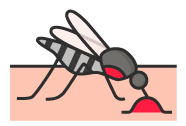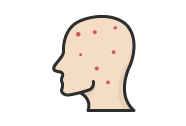Getting ready for international trips entails bringing along travel medicines. They help avoid or even manage particular health concerns that travellers might encounter during their journeys. Here are some often prescribed travel medicines:

Malarials: Travellers to malaria-endemic regions may be given antimalarial medications by their healthcare provider. The medications stop malaria, a mosquito-borne illness. The selection of antimalarial drugs depends upon the destination and resistance patterns of malaria parasites in that area.

Altitude Sickness Medications: Altitude sickness may happen if you intend to go to low-oxygen, high-altitude areas. Altitude sickness could be caused by medicines like acetazolamide, which can alleviate and prevent headaches, nausea, dizziness, and exhaustion.

Medicines for Traveller’s Diarrhoea: Traveller’s diarrhoea is mostly brought on by consuming unclean food or drinking polluted water while travelling internationally. Loperamide, along with other prescription drugs, might ease symptoms like diarrhoea, abdominal cramping, and vomiting. Keep hydrated and get medical help unless symptoms get worse or persist.

Medical Treatment for Motion Sickness: Motion sickness could be the result of nausea, dizziness, and vomiting while on flights, boat rides, or other kinds of transportation. Medicines including dimenhydrinate or meclizine can offer relief.

Pain Relievers: Aim for carrying non prescription pain relievers like acetaminophène or ibuprofen for small aches, pains, migraines, or fevers when travelling.

Allergy Medications: Bring antihistamines or other allergy medicines to manage symptoms like sneezing, itching, or hives in case you have known allergies or are travelling to a location with potential allergens such as pollen or dust mites.
Before taking any travel medication, it’s advisable to consult a physician. Then they will make suggestions based on your area, individual health factors, current medications, and health history. Follow the provided dose directions and be aware of any potential unwanted side effects or drug interactions.
Apart from taking prescribed drugs, maintaining good hygiene, drinking clean water, consuming safe and prepared food, and using insect repellents may significantly lessen health worries while travelling.
List prescription travel medications for various destinations.
Getting ready for international trips entails bringing along travel medicines. They help avoid or even manage particular health concerns that travellers might encounter during their journeys. Here are some often prescribed travel medicines:

Malarials
Travellers to malaria-endemic regions may be given antimalarial medications by their healthcare provider. The medications stop malaria, a mosquito-borne illness. The selection of antimalarial drugs depends upon the destination and resistance patterns of malaria parasites in that area.

Altitude Sickness Medications:
Altitude sickness may happen if you intend to go to low-oxygen, high-altitude areas. Altitude sickness could be caused by medicines like acetazolamide, which can alleviate and prevent headaches, nausea, dizziness, and exhaustion.

Medicines for Traveller’s Diarrhoea:
Traveller’s diarrhoea is mostly brought on by consuming unclean food or drinking polluted water while travelling internationally. Loperamide, along with other prescription drugs, might ease symptoms like diarrhoea, abdominal cramping, and vomiting. Keep hydrated and get medical help unless symptoms get worse or persist.

Medical Treatment for Motion Sickness:
Motion sickness could be the result of nausea, dizziness, and vomiting while on flights, boat rides, or other kinds of transportation. Medicines including dimenhydrinate or meclizine can offer relief.

Pain Relievers:
Aim for carrying non prescription pain relievers like acetaminophène or ibuprofen for small aches, pains, migraines, or fevers when travelling.

Allergy Medications:
Bring antihistamines or other allergy medicines to manage symptoms like sneezing, itching, or hives in case you have known allergies or are travelling to a location with potential allergens such as pollen or dust mites.
Before taking any travel medication, it’s advisable to consult a physician. Then they will make suggestions based on your area, individual health factors, current medications, and health history. Follow the provided dose directions and be aware of any potential unwanted side effects or drug interactions.
Apart from taking prescribed drugs, maintaining good hygiene, drinking clean water, consuming safe and prepared food, and using insect repellents may significantly lessen health worries while travelling.
List prescription travel medications for various destinations.

